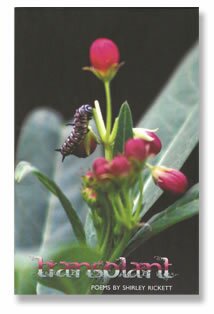
Notes on Transplant
On revisiting these poems, I call them a journey of the heart.
“Where is home?” the first words on the back of this book. “Mostly in the mind and spirit.” comes the answer. In retrospect, I must have been more with mind and spirit when first writing these poems. Some time later, these poems seem more with the heart, and I add this up to a sum that explains that home belongs to us in every interior part, yet even an old wound to the body speaks to us when we touch it. Whichever part comes to the fore can often be found in poems. Here is the rest of the quote from the back of the book:
If we visit a place where once we lived, it is the memories
crowding in that take us back, not the plaster and brick.
Moving is in our DNA, even if we have lived in the same
place for years. The wood and glass changes because we
change. In the Poetics of Space, Gaston Bachelard says
that all inhabited space bears a notion of home, and that an
entire past comes to dwell in a new abode. Transplant
explores these themes of change and loss, and aging and
more. It seeks to carry out what Bachelard calls the
function of poetry: “to give us back the situations of our
dreams.”
2012 Texas Poet Laureate, author of The Parkinson Poems and Nature Nurture Neither
Editor of I-70 Review